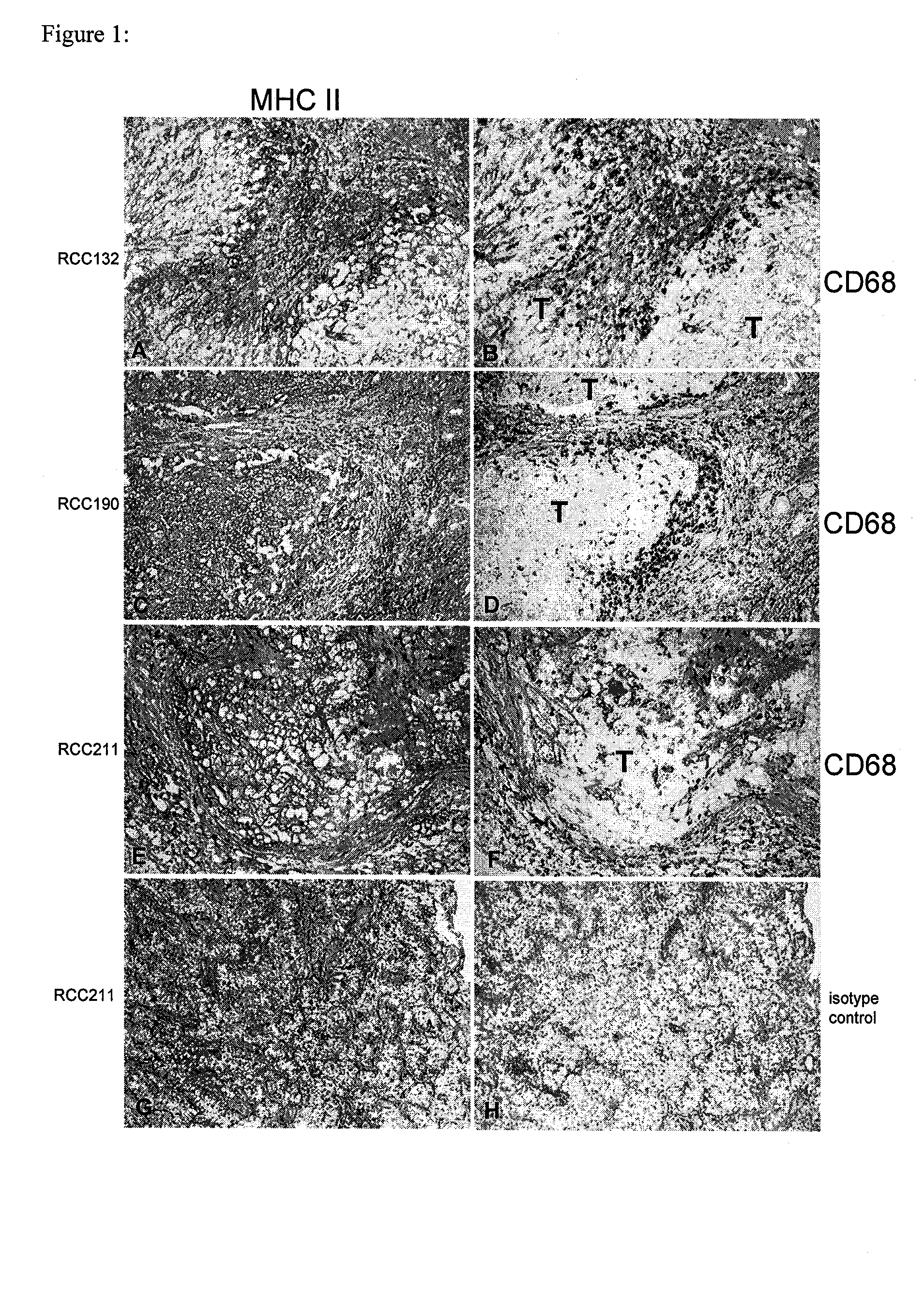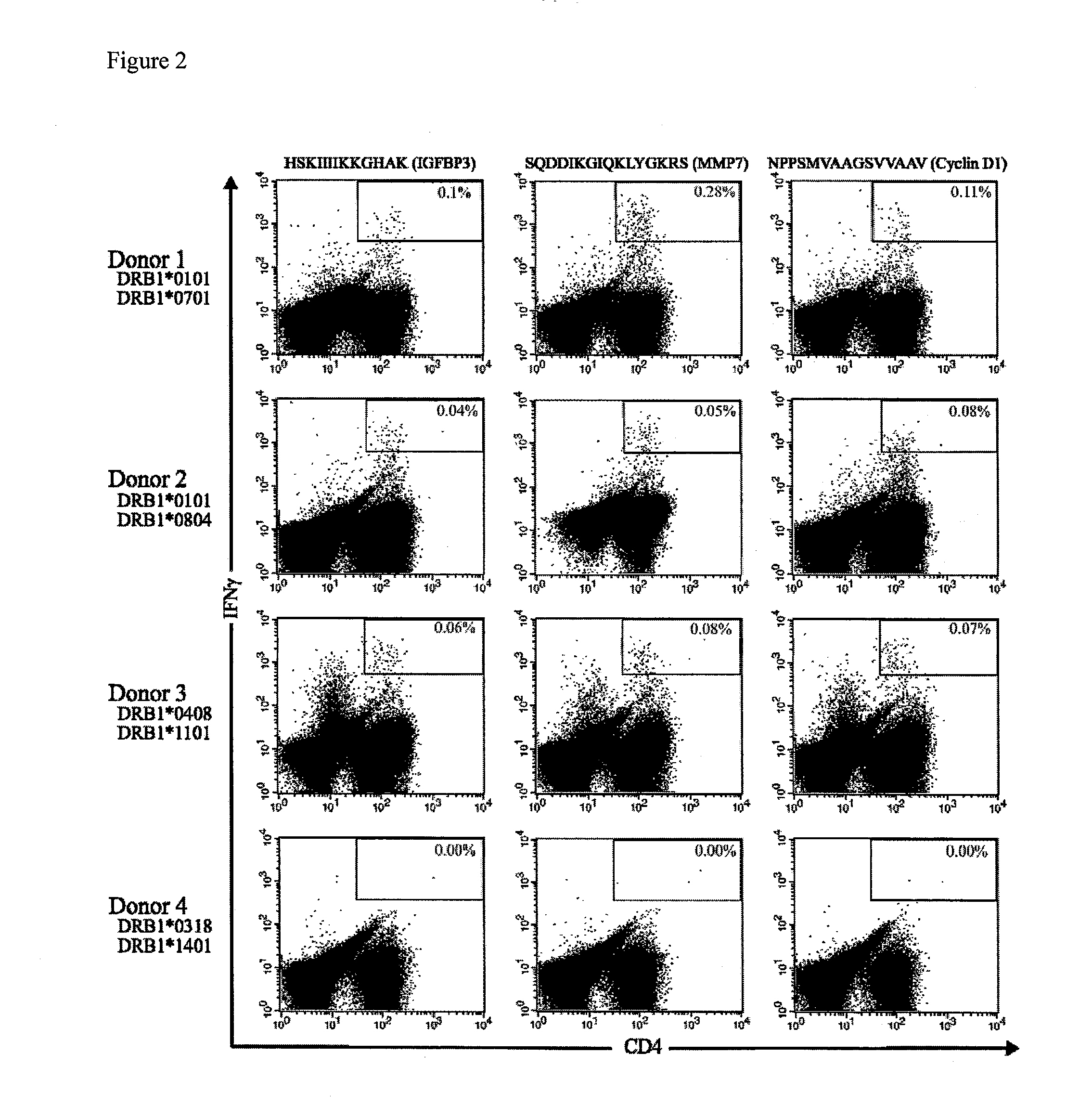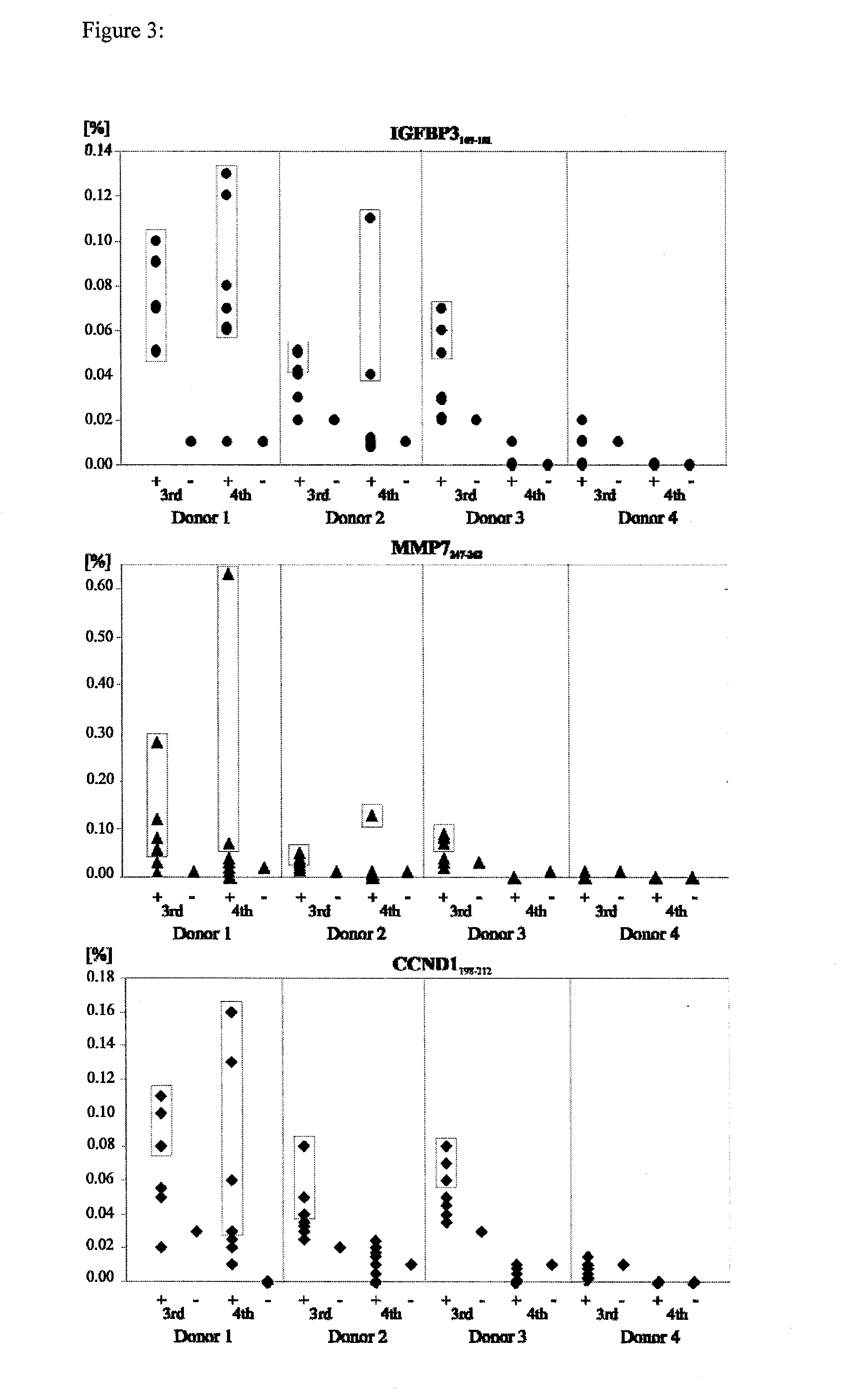Tumor-associated peptides binding to human leukocyte antigen (HLA) class II molecules
a peptide and human leukocyte technology, applied in the field of tumor-associated peptides binding to human leukocyte antigen (hla) class ii molecules, can solve the problems of wasting a lot of research effor
- Summary
- Abstract
- Description
- Claims
- Application Information
AI Technical Summary
Benefits of technology
Problems solved by technology
Method used
Image
Examples
example 1
HLA Class II Expression by RCC
[0173]Under normal, non-inflammatory conditions, HLA class II molecules should only be expressed by cells of the hematopoietic system and by the thymic epithelium (Mach, B., V. Steimle, E. Martinez-Soria, and W. Reith. 1996. Regulation of MHC class II genes: lessons from a disease. Annu. Rev. Immunol. 14:301-331). The situation changes during inflammation. HLA class II expression can be induced in most cell types and tissues by IFNγ (Leib und Gut-Landmann, S., J. M. Waldburger, M. Krawczyk, L. A. Otten, T. Suter, A. Fontana, H. Acha-Orbea, and W. Reith. 2004. Mini-review: Specificity and expression of CIITA, the master regulator of MHC class II genes. Eur. J. Immunol. 34:1513-1525). As RCC incidence is often accompanied by inflammatory events (Blay, J. Y., J. F. Rossi, J. Wijdenes, C. Menetrier-Caux, S. Schemann, S. Negrier, T. Philip, and M. Favrot. 1997. Role of interleukin-6 in the paraneoplastic inflammatory syndrome associated with renal-cell carci...
example 2
Immuno-Histochemical Staining of HLA Class II Molecules
[0174]The inventors analyzed HLA class II expression of ten RCC specimens comprising histological clear cell and papillary renal carcinoma by immuno-histochemical staining and found that all investigated samples revealed class II positive tumor cells. As exemplified in FIG. 1A, a pronounced HLA class II expression was often detected at the margin of the tumor. In these areas the inventors observed a close spatial correlation of HLA positive tumor cells with tumor infiltrating immune cells as illustrated by the visualization of CD68-positive macrophages in a serial tissue section (FIG. 1B). In RCC revealing a more papillary architecture, the expression of HLA class II molecules was more evenly distributed throughout the tumor (FIGS. 1C, E, G). The comparison of the HLA class II and CD68 immuno-histochemical staining patterns in serial tissue sections clearly demonstrates that in addition to macrophages, tumor cells also express H...
example 3
Analysis of Expression of IFNγ and Gene Transcripts Induced by IFNγ
[0175]Additionally, the inventors investigated HLA class II expression by comparative gene expression analysis using oligonucleotide microarrays. With this technique the inventors were able to assess the overall HLA class II expression in the dissected tumors regardless of the expressing cell types. The inventors analyzed differential expression in four tumors, RCC149, RCC180, RCC190, and RCC211, compared with normal reference kidney. In all four tumors, genes encoding HLA class II molecules were found to be over-expressed (Table 2). One possible reason for this might be an induced expression by IFNγ and for this reason the inventors looked for other genes known to be up-regulated by interferons (Kolchanov, N. A., E. V. Ignatieva, E. A. Ananko, O. A. Podkolodnaya, I. L. Stepanenko, T. I. Merkulova, M. A. Pozdnyakov, N. L. Podkolodny, A. N. Naumochkin, and A. G. Romashchenko. 2002. Transcription Regulatory Regions Dat...
PUM
| Property | Measurement | Unit |
|---|---|---|
| pH | aaaaa | aaaaa |
| length | aaaaa | aaaaa |
| nucleic acid | aaaaa | aaaaa |
Abstract
Description
Claims
Application Information
 Login to View More
Login to View More - R&D
- Intellectual Property
- Life Sciences
- Materials
- Tech Scout
- Unparalleled Data Quality
- Higher Quality Content
- 60% Fewer Hallucinations
Browse by: Latest US Patents, China's latest patents, Technical Efficacy Thesaurus, Application Domain, Technology Topic, Popular Technical Reports.
© 2025 PatSnap. All rights reserved.Legal|Privacy policy|Modern Slavery Act Transparency Statement|Sitemap|About US| Contact US: help@patsnap.com



